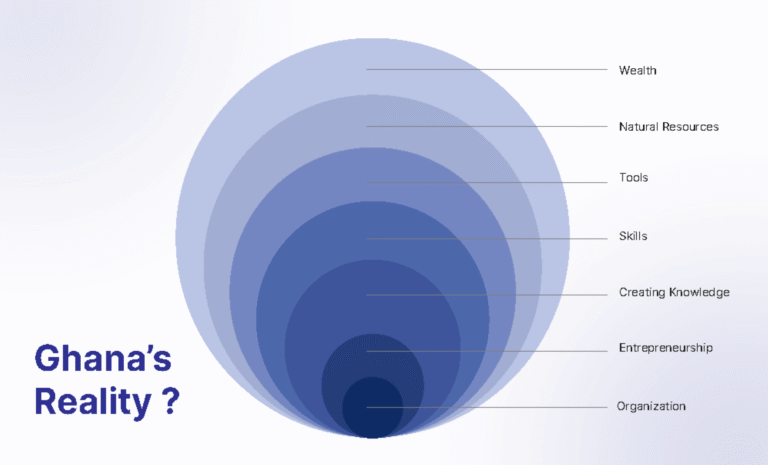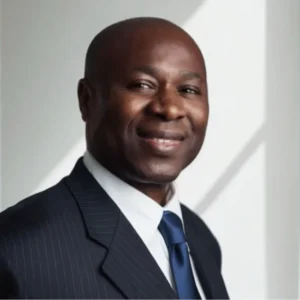Ghana’s Reality
Every society has its puzzles. Ghana’s puzzle is simple to state but hard to solve: why is it so difficult for us to create an environment where companies emerge, survive the cycles of time, and provide decent jobs and incomes for families?
In other parts of the world, economies take off because entrepreneurship does what it was designed to do: it solves problems, and it earns money not only at home but also from abroad. It feeds itself, multiplies, and sustains.
In Ghana, however, entrepreneurship feels more like a contact sport. Everyone is playing. There is noise, energy, and movement. Yet, at the end of the match, no compelling companies stand tall. This is not for lack of trying. It is not simply because of politics. Nor can it be blamed entirely on the usual external suspects. The explanation lies elsewhere.
The Organization of Society
The real root of the problem is in how we have organized our society.
Wealth, yes, is being created. But it is the wrong kind. It sits at the top. It is not generational. It is not tied to solving our greatest problems. Instead, much of it comes from CEO-lifestyle businesses—ventures that look impressive on the surface but do not endure. The rest flows from extractive industries that take from the land, the forests, and the rivers, leaving little behind except holes and dust.
Here’s the tragedy: when non-productive wealth sits at the top, it naturally distorts everything below it. Skills development loses priority. Knowledge creation becomes a luxury. Entrepreneurship itself becomes weakened, like a plant starved of sunlight.
The Deeper Trouble
But if that were the only issue, perhaps it could be managed. What troubles me more lies at the bottom—the foundation.
At the base of our society is disorganization. And disorganization is not merely untidy—it is destructive. It prevents us from reprioritizing. It stops us from focusing on the real challenges. It leaves us trapped in an unsustainable and, perhaps, unstable system.
Think about our corruption. Think about the endless political gridlock. Think about the roads that never get fixed, the debates that never advance beyond weekly controversies, the arguments that burn bright but solve nothing. All of these are symptoms. They rise from that same weak foundation that cannot support an orderly path to development.
The Question
So, how do we tackle this challenge?
First, by admitting that it exists. Second, by seeing clearly that the solution cannot come only from politics or only from individual entrepreneurs. It must come from reorganizing how society itself functions—what we prioritize, what we reward, what we teach, and what we build.
Countries that succeed do so because their entrepreneurs are allowed to create wealth by solving real problems. Their societies make room for knowledge, skill, and invention to rise. Their foundations are firm enough to carry the weight of progress.
For Ghana, the task is no less urgent. We must shift away from short-term wealth and extractive habits, and toward generational wealth, knowledge-driven enterprises, and a social order that can sustain them.
Until then, our entrepreneurship will remain a sport, our wealth a spectacle, and our future a promise postponed.
- Build systems that prioritize problem-solving businesses over extractive wealth.
- Invest in education, research, and knowledge-driven industries.
- Strengthen social organization to support long-term planning and accountability.
- Shift the focus from short-term gain to generational prosperity.
How do we tackle the challenge? The answer begins with honest diagnosis and ends with persistent, collective action.
![NBOSI-01[1] NBOSI-01[1]](https://cloudypos.com/nbosi/wp-content/uploads/sites/59/elementor/thumbs/NBOSI-011-rc3u2ljhmnhjs84d8kcrtfc3b1mya82rhqxld85wl8.png)








